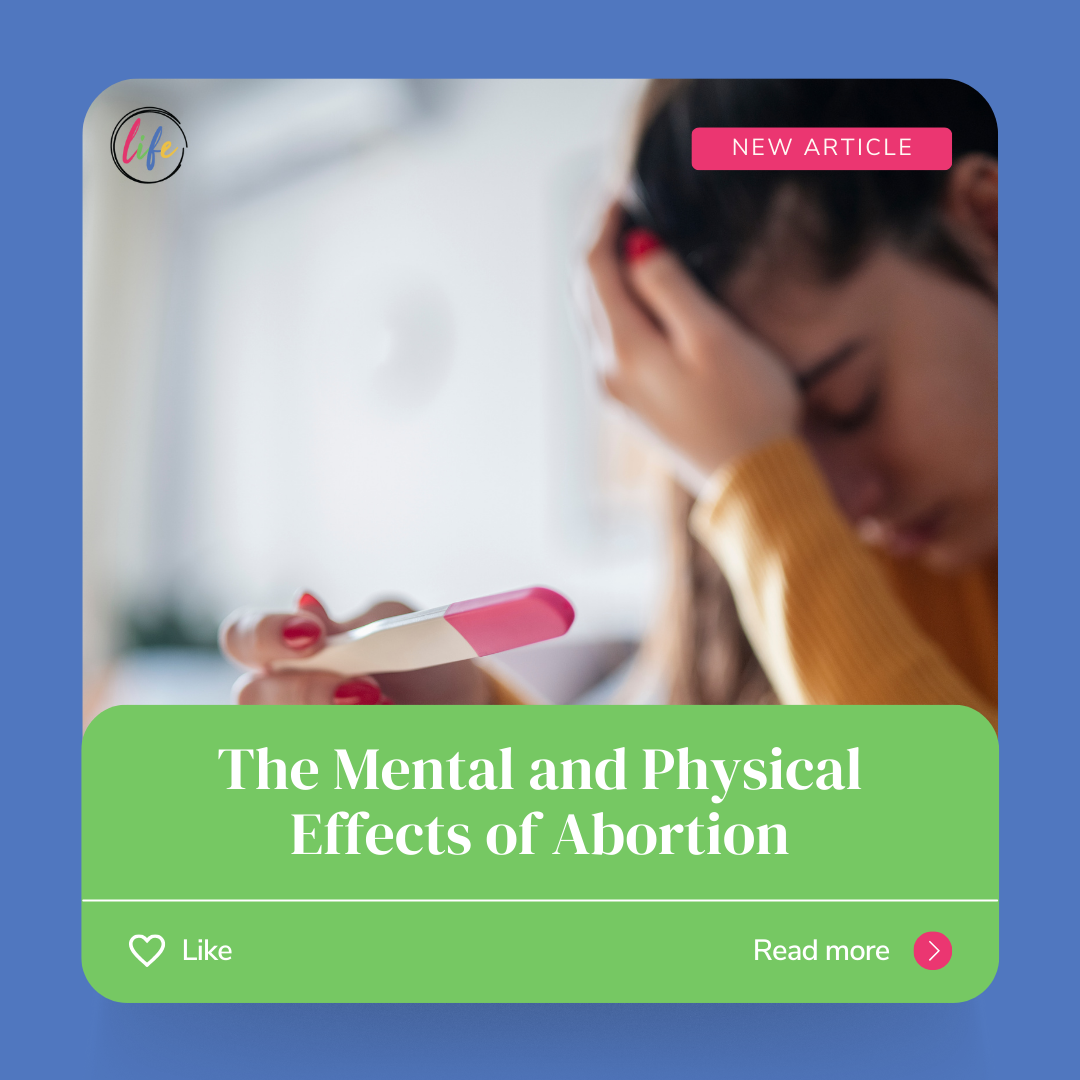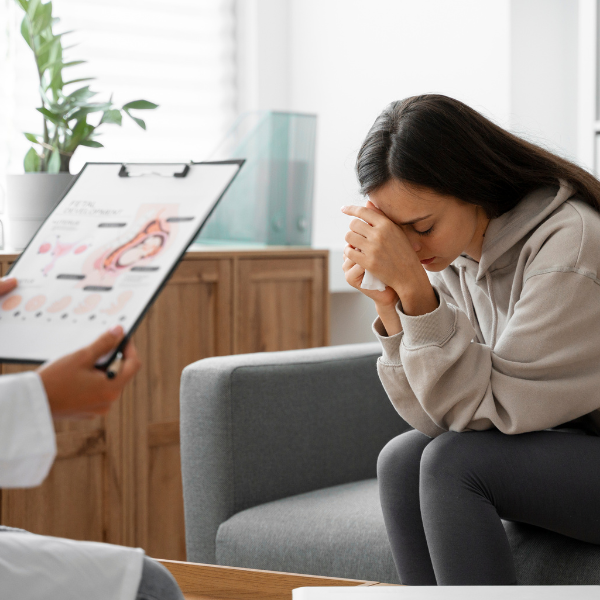
 Abortion not only takes innocent lives but also negatively impacts women mentally and physically. Let’s discuss some of the mental and physical effects of abortion:
Abortion not only takes innocent lives but also negatively impacts women mentally and physically. Let’s discuss some of the mental and physical effects of abortion:
Medical & Surgical Abortions
Medical abortions use pills, such as mifepristone and misoprostol, to induce abortion. The abortion pill is typically administered before 10 weeks gestation and is marketed as a safe option for women. However, this couldn’t be further from the truth.
Not only does the FDA acknowledge severe risks associated with the pill, such as hemorrhage, sepsis, and even death, but have linked 36 fatalities and 4,000 serious complications to the drug. The number of complications has certainly increased since the FDA limited adverse event reporting of mifepristone to only deaths starting in 2016. The FDA ended reporting of non-fatal hospital admissions, emergency room visits, ectopic pregnancies, and other serious medical emergencies.
A recent study by Ning Liu and Joel G. Ray, two researchers from the University of Toronto, found that the adverse event rate for chemical abortions was more than twice that for the surgical procedures. These adverse events included hemorrhage, infection, “retained products of conception,” the need for transfusions, and “other.” A review of chemical abortion patients in Great Britain found that 5.9% of women having chemical abortions between June of 2019 and May of 2021 visited National Health Service hospitals and were treated for issues connected to incomplete abortions with “retained products of conception.”
However, surgical abortions, via D&C or D&E, pose many risks to women as well. These risks include bleeding, infection, post-anesthesia complications, uterine atony, hemorrhage, uterine perforation, damage to adjacent organs, and more.
Medical and surgical abortions don’t just harm the unborn; these procedures put women’s lives at risk.
Coercion
Unintended pregnancies come with a lot of uncertainty and fear. Often, these feelings and concerns are what drives women to choose abortion. However, some women feel pressured to abort by the people in their lives.
A peer-reviewed study, The Effects of Abortion Decision Rightness and Decision Type on Women’s Satisfaction and Mental Health, found that nearly 70% of post-abortive women reported that their decision to abort did not align with their personal convictions; 25% said their decision was unwanted or coerced. For many, support from family, friends, and romantic partners could have changed the outcome of their decision. In fact, 60% would have preferred parenting if they had emotional support and financial security.
What comes of women who have been coerced into getting an abortion? Many experience post-abortive regret and a decline in their mental health and quality of life.
Mental Health
Whether a woman is coerced or chooses abortion of her own freewill, it is not an easy decision to make. As we know, the majority of women would not have chosen abortion over parenting if they felt they had the necessary resources to raise a child. It is no surprise that post-abortive women experience mental health issues as a result.
Countless studies show there are correlations between abortion and depression, anxiety disorders, substance abuse, and loss of self-esteem. The same studies indicated psychological outcomes were better for women who gave birth versus those who terminated their pregnancies.
Pro-choice messaging markets abortion as “empowering” yet conveniently excludes all the ways in which it harms women mentally and emotionally.
Learn more about the various stages of fetal development (conception, first, second, and third trimester) and don’t forget to follow us on social media (Facebook, Instagram, and TikTok).